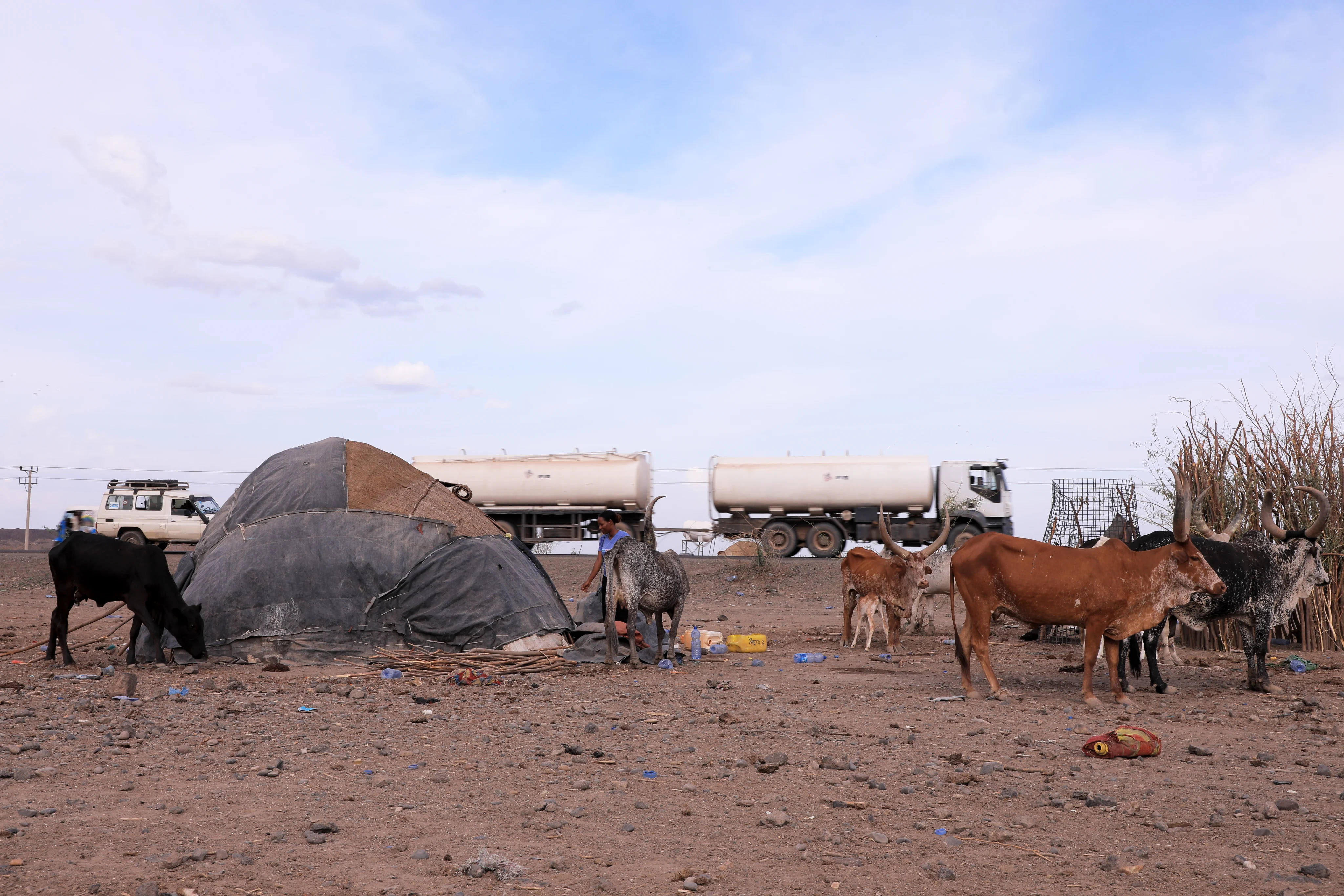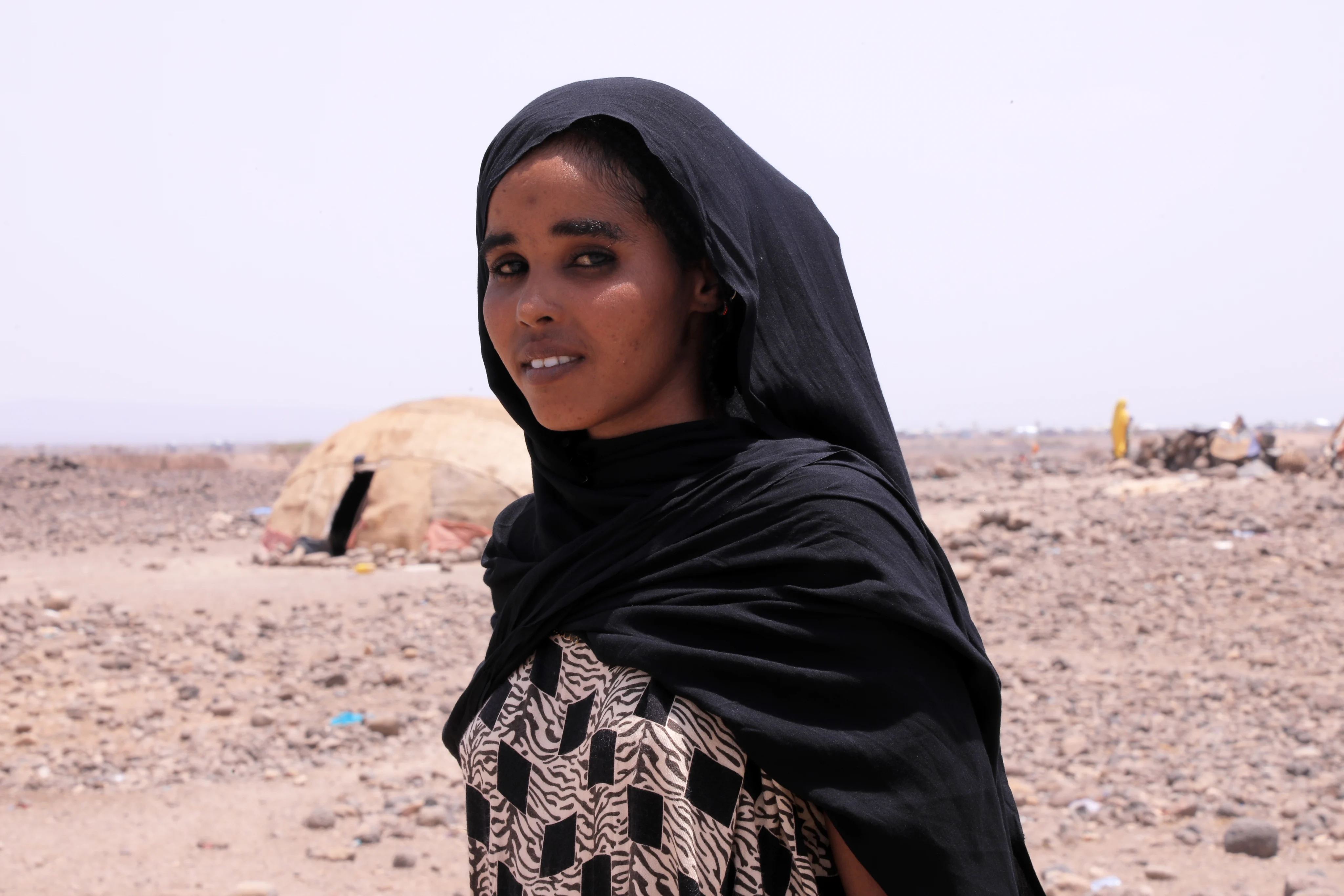Dami’s story: The impact of Ethiopia's drought on women and girls

18-year-old Dami has not seen any rain for the past two years. Not one drop of water has fallen on her parched community in Afar – one of the driest regions in Ethiopia. Without water, crops will not grow and trying to keep livestock alive is a daily battle as there is little animal food available.

“The drought means there is a no drinking water left here so we have to travel long distances to look for water. Only the lucky ones are fortunate enough to get water. Since the drought hit the area, we often cannot even find enough water even after travelling a long distance," she shares.
Dami now spends most of her time looking for water to help her family survive. This has interfered with her studies, forcing her to quit school. Thousands of girls are in a similar position to Dami who tells us that most of her friends no longer go to school, instead supporting their families to find food and water.
More than 3.6 million children are currently at risk of dropping out of school due to the drought in the Horn of Africa, according to the United Nations, amid warnings the hunger crisis currently affecting Kenya, Somalia and Ethiopia could lead to “a lost generation” of children missing out on education.
“Many of my friends travel on foot for two days to find water, carrying it back on their backs or on donkeys or camels because they give priority to saving their families lives. As a result of which, they are forced to interrupt their education.”
With most wells, cisterns, and natural earth dams dried up, Plan International, along with our local partners, are providing emergency water trucking to drought-prone communities most affected by the drought. It is the only solution in an area where no rain has left the ground cracked and dry and drilling bore holes is no longer a possibility as the water table is so low.
Drought and food insecurity go hand-in-hand, which is why this tax season Plan International is:
· delivering nutritious food parcels and cash vouchers
· providing a nutritious meal for students and rations to take home
· empowering families to grow their own food in changing climates by providing tools, special seeds, and farming education.

